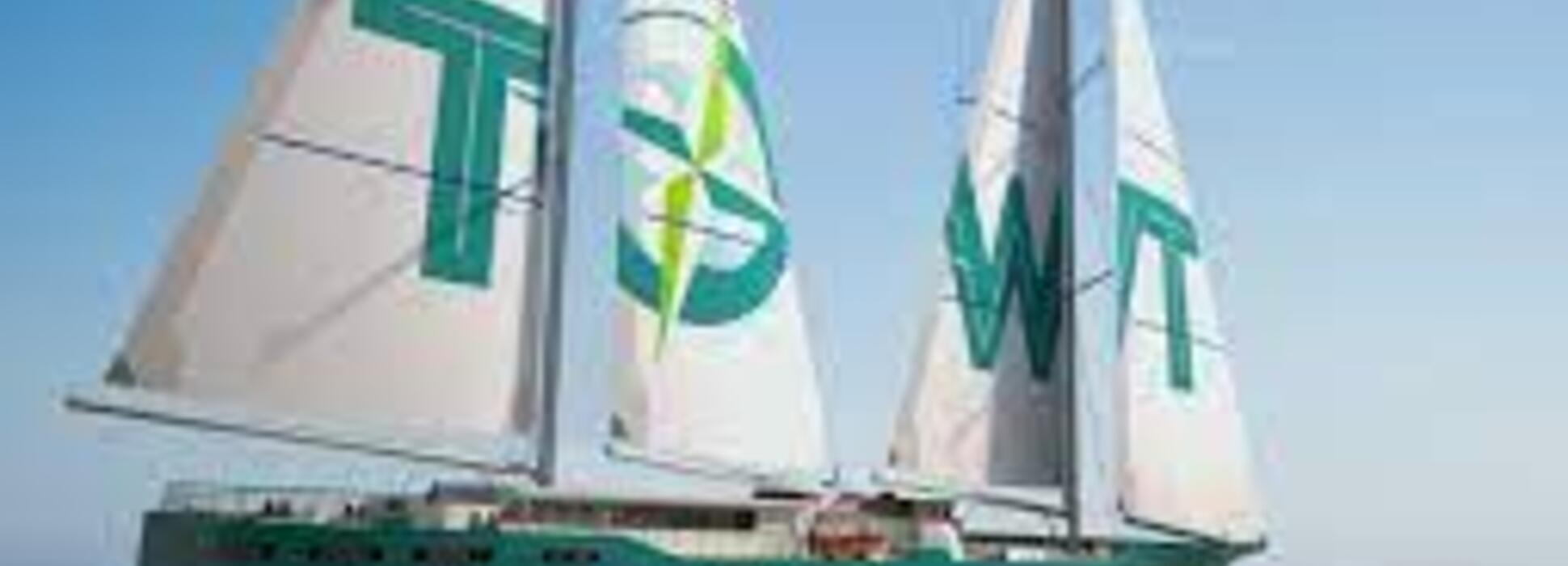Straight out of the Romanian site of Piriou, the Towt cargo sailboat arrived at the Concarneau shipyards (Finistère) waiting to be fitted out for international shipping.
The company from Le Havre Towt (TransOceanic Wind Transport) hit the nail on the head and launches the first cargo sailboat in modern history. Its objective: "decarbonize maritime transport by using the force of the wind for a more sober mode of transport, less dependent on hydrocarbons, and more transparent". The project will be completed in Concarneau by spring 2024 and the arrival in Le Havre and the first transport are scheduled for 2024.
Two modern sail-powered ships
It has been years since the co-creators of the company Guillaume le Grand and Diana Mesa sensed the major challenge of decarbonizing maritime transport. Since 2016, the visionaries have been launching the idea of sail-powered ships for the transport of goods in quantity and over long distances. Their ships will represent more than 95% of decarbonization on average compared to the traditional activity of cargo ships with equivalent tonnage. Building a credible, competitive and ecological activity around the transport of goods by the force of the wind is becoming a reality today.
Anemos, future cargo-sailboat
These huge cargo-sailing ships will have an air draft of 64 meters (height) (210 ft), a length of 81 meters (266 ft) and will weigh up to 2,500 tons to transport up to 1,100 tons of cargo per trip. With a cruising speed of about 10 knots, they certainly go slower than current cargo ships, but the environmental impact is much lower: less than one gram of carbon dioxide per ton of cargo transported per kilometer traveled compared to 9.5 g for cargo ships. The first of them, Anemos, is awaiting completion today with the installation of the two 57-meter (187 ft) masts. A second ship is being built in Vietnam.
Taking a break out of time
After an arrival in Le Havre celebrated with fanfare in the ocean city, the ship will then set sail to pick up its first deliveries in NewYork, the West Indies, Abidjan or Asia to then be delivered to Le Havre. The sailing freighters also offer a capacity of 12 passengers to try the transoceanic experience. 15 days to go to the United States, 20 days to Colombia, 24 days to Brazil and 40 days to Vietnam: a unique nautical and intellectual experience where sailors and passengers rub shoulders and live together.
SMARTAPPART, the housing solution in the city of Le Havre
SMARTAPPART residential hotels are an economical alternative to hotels in the city of Le Havre. Rates are discounted starting from two nights. From studios to two-room apartments, the luxury furnished apartments are suited to any type of stay. An innovative online booking and payment system allows you to access the apartments in a self-service fashion.
97, Cours de la République - 105, Cours de la République
Related reading:
Le Havre SME Drone XTR signs a memorandum of understanding with Thales


